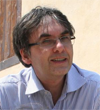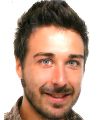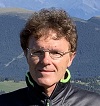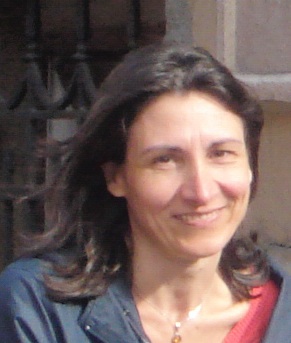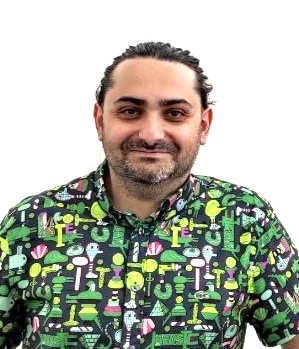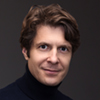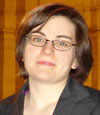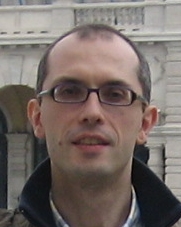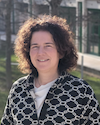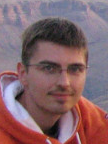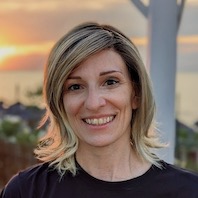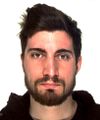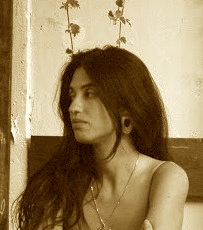Studying at the University of Verona
Here you can find information on the organisational aspects of the Programme, lecture timetables, learning activities and useful contact details for your time at the University, from enrolment to graduation.
Academic calendar
The academic calendar shows the deadlines and scheduled events that are relevant to students, teaching and technical-administrative staff of the University. Public holidays and University closures are also indicated. The academic year normally begins on 1 October each year and ends on 30 September of the following year.
Course calendar
The Academic Calendar sets out the degree programme lecture and exam timetables, as well as the relevant university closure dates..
| Period | From | To |
|---|---|---|
| Semester 1 | Oct 3, 2022 | Jan 27, 2023 |
| Semester 2 | Mar 6, 2023 | Jun 16, 2023 |
| Session | From | To |
|---|---|---|
| Sessione invernale d'esame | Jan 30, 2023 | Mar 3, 2023 |
| Sessione estiva d'esame | Jun 19, 2023 | Jul 31, 2023 |
| Sessione autunnale d'esame | Sep 4, 2023 | Sep 29, 2023 |
| Session | From | To |
|---|---|---|
| Sessione di laurea estiva | Jul 11, 2023 | Jul 11, 2023 |
| Sessione di laurea autunnale | Oct 17, 2023 | Oct 17, 2023 |
| Sessione autunnale di laurea - dicembre | Dec 5, 2023 | Dec 5, 2023 |
| Sessione invernale di laurea | Mar 12, 2024 | Mar 12, 2024 |
| Period | From | To |
|---|---|---|
| Ponte Festa di tutti i Santi | Oct 31, 2022 | Nov 1, 2022 |
| Ponte dell'Immacolata Concezione | Dec 8, 2022 | Dec 9, 2022 |
| Vacanze natalizie | Dec 23, 2022 | Jan 8, 2023 |
| Vacanze di Pasqua | Apr 7, 2023 | Apr 10, 2023 |
| Festa della Liberazione | Apr 24, 2023 | Apr 25, 2023 |
| Festa del lavoro | May 1, 2023 | May 1, 2023 |
| Festa del Santo Patrono | May 21, 2023 | May 21, 2023 |
| Festa della Repubblica | Jun 2, 2023 | Jun 2, 2023 |
| Chiusura estiva | Aug 14, 2023 | Aug 19, 2023 |
Exam calendar
Exam dates and rounds are managed by the relevant Science and Engineering Teaching and Student Services Unit.
To view all the exam sessions available, please use the Exam dashboard on ESSE3.
If you forgot your login details or have problems logging in, please contact the relevant IT HelpDesk, or check the login details recovery web page.
Should you have any doubts or questions, please check the Enrollment FAQs
Academic staff
 maurizio.boscaini@univr.it
maurizio.boscaini@univr.it
 alberto.burato@univr.it
alberto.burato@univr.it
 matteo.calgaro_01@univr.it
matteo.calgaro_01@univr.it
 vittoria.cozza@univr.it
vittoria.cozza@univr.it
 mila.dallapreda@univr.it
mila.dallapreda@univr.it
 michele.ginesi@univr.it
michele.ginesi@univr.it
 rosanna.laking@univr.it
rosanna.laking@univr.it
 stefano.spellini@univr.it
stefano.spellini@univr.it
 claudio.tomazzoli@univr.it
claudio.tomazzoli@univr.it
 franco.zivcovich@univr.it
franco.zivcovich@univr.it
Study Plan
The Study Plan includes all modules, teaching and learning activities that each student will need to undertake during their time at the University.
Please select your Study Plan based on your enrollment year.
1° Year
| Modules | Credits | TAF | SSD |
|---|
Mathematical analysis 1
Computer Architecture
2° Year activated in the A.Y. 2023/2024
| Modules | Credits | TAF | SSD |
|---|
3° Year It will be activated in the A.Y. 2024/2025
| Modules | Credits | TAF | SSD |
|---|
| Modules | Credits | TAF | SSD |
|---|
Mathematical analysis 1
Computer Architecture
| Modules | Credits | TAF | SSD |
|---|
| Modules | Credits | TAF | SSD |
|---|
| Modules | Credits | TAF | SSD |
|---|
Legend | Type of training activity (TTA)
TAF (Type of Educational Activity) All courses and activities are classified into different types of educational activities, indicated by a letter.
Physics 1 (2022/2023)
Teaching code
4S00038
Teacher
Coordinator
Credits
6
Language
Italian
Scientific Disciplinary Sector (SSD)
FIS/01 - EXPERIMENTAL PHYSICS
Period
Semester 2 dal Mar 6, 2023 al Jun 16, 2023.
Learning objectives
The course aims to provide students with an introduction to the experimental method and the basics of classical mechanics and thermodynamics. Upon completion of the course: students will be able to demonstrate knowledge and understanding of the laws of classical mechanics and thermodynamics; students will be able to apply the acquired knowledge and understanding skills to solve problems of mechanics and thermodynamics; students will have the capability to apply the fundamental concepts of classical mechanics and thermodynamics to the resolution of practical problems that they will meet during forthcoming studies; students will develop the skills required to continue the studies in an autonomous way in those disciplines pertaining to the graduation in Computer Science that require the application and knowledge of the laws of Physics;
Prerequisites and basic notions
High school level Math. It is desirable that the students have acquired the math notions of the Analysis I course.
Program
1- Physics and measurement. Standards of lenght, mass and time. Dimensional analysis, Conversion of units. Vector and scalar quantities. Components of a vector and unit vectors. Properties of vectors. The scalar and vector products of two vectors.
2- Motion in one dimension. Position, velocity and speed. Particle under constant velocity. Acceleration. Motion diagrams. Particle under constant acceleration. Freely falling object. Motion in two dimensions. Position velocity and acceleration vectors. Two dimensional motion with constant acceleration. Projectile motion. Particle in uniform circular motion. Tangential and radial acceleration. Relative velocity and relative acceleration.
3- The Laws of Motion: The concept of force. Newton’s first law and inertial frames. Mass. Newton’s second law. The gravitational and electrostatic forces. The gravitational force and weight. Newton’s third law. Forces of friction. Newton’s second law for a particle under uniform circular motion. Non uniform circular motion. Motion in accelerated frames. Motion in the presence of resistive forces.
4- Energy and work. Work done by a constant force. Work done by a varying force. Kinetic energy and the work-kinetic energy theorem. Potential energy. Conservative and non conservative forces. Relationship between conservative forces and potential energy. Energy diagrams and equilibrium of a system. Conservation of energy for a non isolated system and for an isolated system. Situations involving kinetic friction. Changes in mechanical energy for non conservative forces. Power.
5- Linear momentum and collisions. Linear momentum and its conservation. Collisions in one dimension. Collisions in two dimensions. The center of mass. Systems of many particles. Rocket propulsion.
6- Rotation of a rigid object about a fixed axis. Angular position, velocity and acceleration. Rigid object under constant angular acceleration. Angular and translational quantities. Rotational kinetic energy. Moments of Inertia. Torque. Rigid object under a net torque. Energy consideration in rotational motion. Angular momentum. Angular momentum for a rigid object. Angular momentum for an isolated system.
7- Newton’s law of universal gravitation. Free-fall acceleration and the gravitational force. Kepler’s laws and the motion of planets. The gravitational field. Gravitational potential energy.
8- Fluid Mechanics. Pressure. Variation of pressure with depth. Pressure measurements. Archimede’s principle. Fluid dynamics. Bernoulli’s equation.
9- Oscillatory motion. Motion of an object attached to a spring. Particle in simple harmonic motion. Energy of the simple harmonic oscillator. Comparing simple harmonic motion with uniform circular motion. The pendulum. Damped and forced oscillations.
10- Thermodynamics. Temperature and the zeroth law of thermodynamics. Thermometers and the Celsius temperature scale. The constant-volume gas thermometer and the absolute temperature scale. Thermal expansion. Macroscopic description of an ideal gas. Heat and internal energy. Specific heat and calorimetry. Work and heat in thermodynamic processes. The first law of Thermodynamics. Heat engines and the second law of thermodynamics. Reversible and irreversible processes. The Carnot engine. Entropy.
Bibliography
Didactic methods
The course is carried out according to a traditional, frontal approach, with the aid of slides prepared by the teacher. Videos are also used with the aim of intuitively enunciating laws that are formally too complex for a student in the first year of a course, with the aim of showing practical applications of physical laws or to stimulate interest in recent developments in physics. Theoretical lessons are constantly accompanied by exercises that show practical applications and prepare for passing the final exam.
Learning assessment procedures
Written test consisting of exercises on the topics covered during the course and some multiple choice questions. The witten test can be followed by an oral exam (optional), which aims to acquire, if necessary, further elements for evaluation of students and eventually clarify aspects of the written test.
Evaluation criteria
There are no intermediate tests. The final exam will be a written test consisting of exercises on the topics covered during the course and some multiple choice questions. The witten test can be followed by an oral exam (optional), which aims to acquire, if necessary, further elements for evaluation of students and eventually clarify aspects of the written test.
Criteria for the composition of the final grade
The final exam will consist in the solution of three simple problems each of which will contribute to the final grade with 10 points. Three multiple choice quizzes will also be proposed, each of which will contribute to the final grade with 1 point.
Exam language
Italiano
Type D and Type F activities
Le attività formative di tipologia D sono a scelta dello studente, quelle di tipologia F sono ulteriori conoscenze utili all’inserimento nel mondo del lavoro (tirocini, competenze trasversali, project works, ecc.). In base al Regolamento Didattico del Corso, alcune attività possono essere scelte e inserite autonomamente a libretto, altre devono essere approvate da apposita commissione per verificarne la coerenza con il piano di studio. Le attività formative di tipologia D o F possono essere ricoperte dalle seguenti attività.
1. Insegnamenti impartiti presso l'Università di Verona
Comprendono gli insegnamenti sotto riportati e/o nel Catalogo degli insegnamenti (che può essere filtrato anche per lingua di erogazione tramite la Ricerca avanzata).
Modalità di inserimento a libretto: se l'insegnamento è compreso tra quelli sottoelencati, lo studente può inserirlo autonomamente durante il periodo in cui il piano di studi è aperto; in caso contrario, lo studente deve fare richiesta alla Segreteria, inviando a carriere.scienze@ateneo.univr.it il modulo nel periodo indicato.
2. Attestato o equipollenza linguistica CLA
Oltre a quelle richieste dal piano di studi, per gli immatricolati dall'A.A. 2021/2022 vengono riconosciute:
- Lingua inglese: vengono riconosciuti 3 CFU per ogni livello di competenza superiore a quello richiesto dal corso di studio (se non già riconosciuto nel ciclo di studi precedente).
- Altre lingue e italiano per stranieri: vengono riconosciuti 3 CFU per ogni livello di competenza a partire da A2 (se non già riconosciuto nel ciclo di studi precedente).
Tali cfu saranno riconosciuti, fino ad un massimo di 6 cfu complessivi, di tipologia F se il piano didattico lo consente, oppure di tipologia D. Ulteriori crediti a scelta per conoscenze linguistiche potranno essere riconosciuti solo se coerenti con il progetto formativo dello studente e se adeguatamente motivati.
Gli immatricolati fino all'A.A. 2020/2021 devono consultare le informazioni che si trovano qui.
Modalità di inserimento a libretto: richiedere l’attestato o l'equipollenza al CLA e inviarlo alla Segreteria Studenti - Carriere per l’inserimento dell’esame in carriera, tramite mail: carriere.scienze@ateneo.univr.it
3. Competenze trasversali
Scopri i percorsi formativi promossi dal TALC - Teaching and learning center dell'Ateneo, destinati agli studenti regolarmente iscritti all'anno accademico di erogazione del corso https://talc.univr.it/it/competenze-trasversali
Modalità di inserimento a libretto: non è previsto l'inserimento dell'insegnamento nel piano di studi. Solo in seguito all'ottenimento dell'Open Badge verranno automaticamente convalidati i CFU a libretto. La registrazione dei CFU in carriera non è istantanea, ma ci saranno da attendere dei tempi tecnici.
4. CONTAMINATION LAB
Il Contamination Lab Verona (CLab Verona) è un percorso esperienziale con moduli dedicati all'innovazione e alla cultura d'impresa che offre la possibilità di lavorare in team con studenti e studentesse di tutti i corsi di studio per risolvere sfide lanciate da aziende ed enti. Il percorso permette di ricevere 6 CFU in ambito D o F. Scopri le sfide: https://www.univr.it/clabverona
ATTENZIONE: Per essere ammessi a sostenere una qualsiasi attività didattica, incluse quelle a scelta, è necessario essere iscritti all'anno di corso in cui essa viene offerta. Si raccomanda, pertanto, ai laureandi delle sessioni di dicembre e aprile di NON svolgere attività extracurriculari del nuovo anno accademico, cui loro non risultano iscritti, essendo tali sessioni di laurea con validità riferita all'anno accademico precedente. Quindi, per attività svolte in un anno accademico cui non si è iscritti, non si potrà dar luogo a riconoscimento di CFU.
5. Periodo di stage/tirocinio
Oltre ai CFU previsti dal piano di studi (verificare attentamente quanto indicato sul Regolamento Didattico): qui informazioni su come attivare lo stage.
Insegnamenti e altre attività che si possono inserire autonomamente a libretto
| years | Modules | TAF | Teacher |
|---|---|---|---|
| 2° 3° | Introduction to Docker | D |
Franco Fummi
(Coordinator)
|
| 2° 3° | Introduction to Robotics for students of scientific courses. | D |
Paolo Fiorini
(Coordinator)
|
| 2° 3° | Matlab-Simulink programming | D |
Bogdan Mihai Maris
(Coordinator)
|
| 2° 3° | Mobile app design by using React Native | D |
Graziano Pravadelli
(Coordinator)
|
| 2° 3° | Rapid prototyping on Arduino | D |
Franco Fummi
(Coordinator)
|
| 2° 3° | Programming Challanges | D |
Romeo Rizzi
(Coordinator)
|
| years | Modules | TAF | Teacher |
|---|---|---|---|
| 2° 3° | Introduction to 3D printing | D |
Franco Fummi
(Coordinator)
|
| 2° 3° | LaTeX Language | D |
Enrico Gregorio
(Coordinator)
|
| 2° 3° | Python programming language | D |
Carlo Combi
(Coordinator)
|
| 2° 3° | HW components design on FPGA | D |
Franco Fummi
(Coordinator)
|
| 2° 3° | Protection of intangible assets (SW and invention)between industrial law and copyright | D |
Roberto Giacobazzi
(Coordinator)
|
| years | Modules | TAF | Teacher |
|---|---|---|---|
| 1° | Subject requirements: mathematics | D |
Franco Zivcovich
|
Career prospects
Module/Programme news
News for students
There you will find information, resources and services useful during your time at the University (Student’s exam record, your study plan on ESSE3, Distance Learning courses, university email account, office forms, administrative procedures, etc.). You can log into MyUnivr with your GIA login details: only in this way will you be able to receive notification of all the notices from your teachers and your secretariat via email and soon also via the Univr app.
Graduation
List of theses and work experience proposals
| theses proposals | Research area |
|---|---|
| Analisi e percezione dei segnali biometrici per l'interazione con robot | AI, Robotics & Automatic Control - AI, Robotics & Automatic Control |
| Integrazione del simulatore del robot Nao con Oculus Rift | AI, Robotics & Automatic Control - AI, Robotics & Automatic Control |
| Domain Adaptation | Computer Science and Informatics: Informatics and information systems, computer science, scientific computing, intelligent systems - Computer graphics, computer vision, multi media, computer games |
| Domain Adaptation | Computer Science and Informatics: Informatics and information systems, computer science, scientific computing, intelligent systems - Machine learning, statistical data processing and applications using signal processing (e.g. speech, image, video) |
| BS or MS theses in automated reasoning | Computing Methodologies - ARTIFICIAL INTELLIGENCE |
| Domain Adaptation | Computing Methodologies - IMAGE PROCESSING AND COMPUTER VISION |
| Domain Adaptation | Computing methodologies - Machine learning |
| Dati geografici | Information Systems - INFORMATION SYSTEMS APPLICATIONS |
| Analisi e percezione dei segnali biometrici per l'interazione con robot | Robotics - Robotics |
| Integrazione del simulatore del robot Nao con Oculus Rift | Robotics - Robotics |
| BS or MS theses in automated reasoning | Theory of computation - Logic |
| BS or MS theses in automated reasoning | Theory of computation - Semantics and reasoning |
| Proposte di tesi/collaborazione/stage in Intelligenza Artificiale Applicata | Various topics |
| Proposte di Tesi/Stage/Progetto nell'ambito dell'analisi dei dati | Various topics |
Attendance
As stated in the Teaching Regulations for the A.Y. 2022/2023, attendance at the course of study is not mandatory.
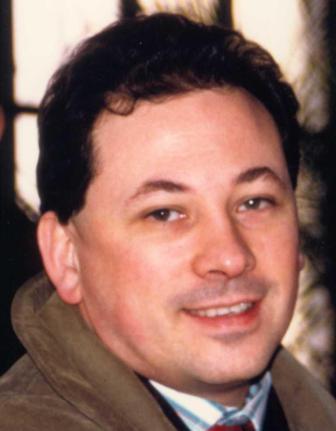
 +39 045 802 7980
+39 045 802 7980


